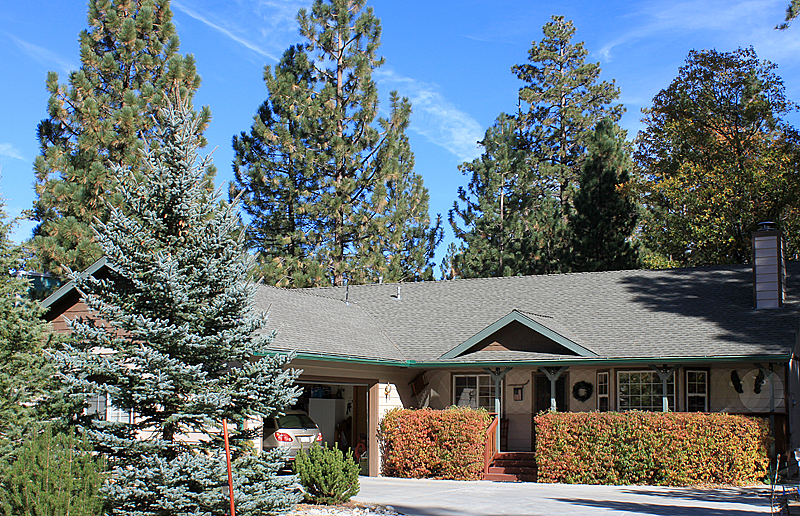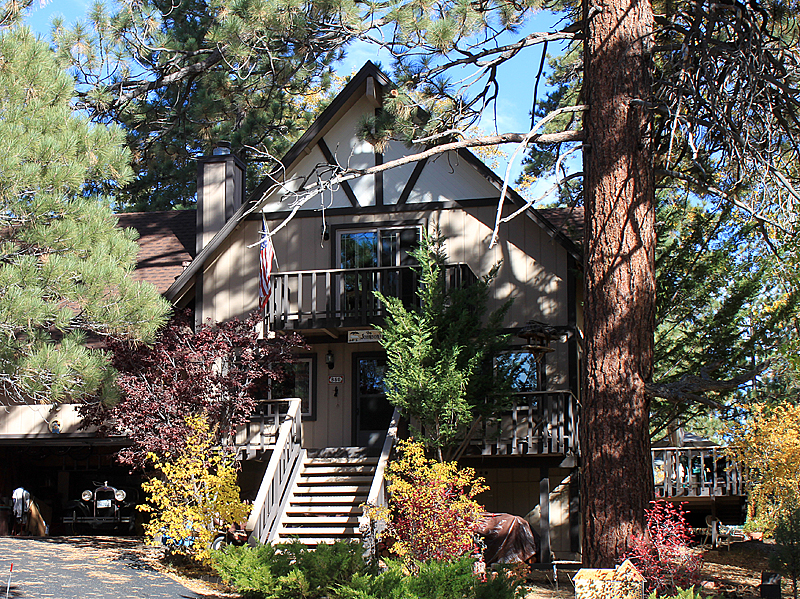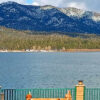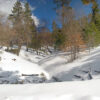Big Bear…
was hit with a cold snap earlier in January and the ever present problem of frozen pipes reared its ugly head throughout the valley. I made the rookie mistake of leaving my hoses attached to the outdoor faucets and woke up to frozen pipes. Fortunately, the problem was isolated to a small area of my home, but I learned from my plumber that over 40 homes in my neighborhood had been affected.
Water, as we learned in school, expands when frozen. That’s a problem because inside the pipes, there is no room to expand, and the result is great pressure on pipe walls, fittings, and seals. If anything bursts, the result can be a flood throughout the home which results in damages costing thousands of dollars.
Building codes require that homes are designed so that pipes enter beneath the frost line. That means water lines into a home are unlikely to freeze. But problems can arise when pipes are inside walls which are not insulated, or when pipe fittings extend outside walls.
If the possibility of frozen pipes is a concern it’s best to consult with a licensed plumber in your community to determine the preventive measures which work best locally.
The good news is that the problem of frozen pipes can be often avoided with a few basic steps.
Before The Freeze
• Install foam sleeves around outdoor faucets and exposed pipes.
• Cover any vents around your home’s foundation.
• Disconnect outdoor water hoses and bring them indoors.
• Open the cabinets under the sinks in your kitchen and bathrooms to circulate warm indoor air.
• Protect outdoor electrical pumps.
• If you have an outdoor spa, either drain the circulation system or temporarily keep the pump motor running. Caution: Running the motor for long periods could damage it.
• If you leave your property for an extended period of time, turn off your water at the stop/waste valve while faucets are running to drain your pipes. (Make sure the faucets are turned off before you turn the stop/waste valve back on.)
• If you drain your pipes, contact your electric or gas utility for instructions on protecting your water heater.
If Your Pipes Freeze
• Turn off your water at the stop/waste shut-off valve.
• Call a plumber for help.
• Don’t use lamps or electrical appliances to thaw frozen pipes. Leaking water from thawing pipes could cause a short and you could be electrocuted.
• If you try to thaw your own pipes, apply heat slowly, and move it toward the coldest spot on the pipe. Never concentrate heat in one spot — cracking ice can shatter a pipe.
In terms of insurance, homeowner and renters insurance policies often pay for repairs, debris removal, and even temporary living expenses. To find out what your policy does or does not cover, review your terms with your insurance agent and add coverage as required. If you have a loss, contact your insurance agent promptly and file a claim. It’s a good idea to make a photographic record of the damage to support claims.
If you must make temporary repairs, keep the receipts. Your insurance policy may reimburse you for temporary costs designed to prevent further damage. However, your insurance policy may not cover costs for permanent repairs unless authorized by the insurance company.
More About Real Estate Investments;
- Why Women Make Great Investors « Investment Strategies, Inc. – Women really do make great investors. Why? Because investing is about more than just math and numbers. Women are becoming more and more deeply invested in their own financial success for many reasons: Careers are …
- Real Estate Investment Resolutions For The New Year – Consider the following real estate investment tips and potential resolutions. Resolve to Get Your Finances in Order and Buy Something. Get your finances in order and buy your first or second real estate investment property.
- Some Effective Real Estate Investment Tips – Property Investing – Some Effective Real Estate Investment Tips. With the rapid downfall in the economy, many people now seem to take their steps back when it comes to real estate investment. The idea here is to have a home that brings you …









Speak Your Mind